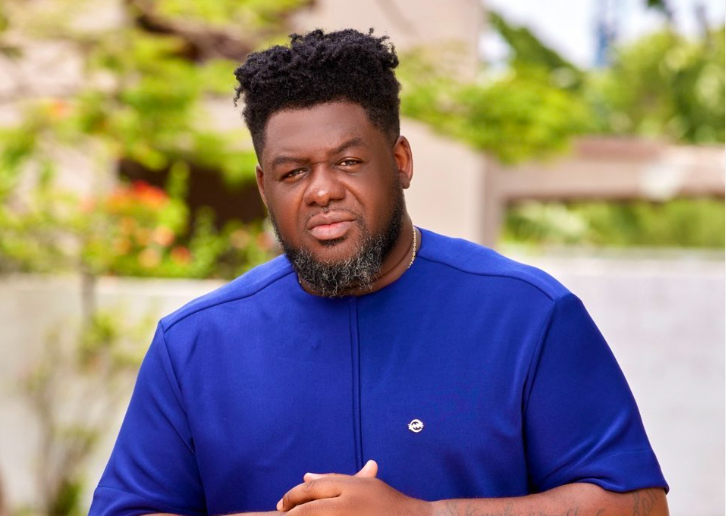Why You Need a Professional Technical Producer as a Musician
- orpmarketing
- May 18, 2025
- 6 min read

Music is magic, isn’t it? A melody that hits just right, a beat that makes your heart race, or a lyric that feels like it was written for you. But behind every track that gives you goosebumps is a team of unsung heroes, and one of the most critical is the technical producer. If you’re a musician, you might be wondering, “Do I really need one?” Spoiler alert: Yes, you do. Let’s dive into who a technical producer is, why they’re essential, how their role has evolved, and what they bring to the table today. Plus, we’ll weave in the inspiring story of Emmanuel Nana Agyeman, known as Agyingo, the heartbeat of Agyingo Studioz in Dansoman, Accra.
Who Is a Technical Producer?
A technical producer is the wizard behind the curtain in music production. They’re not just tweaking knobs or pressing buttons (though they’re pretty darn good at that). They’re the bridge between the artist’s creative vision and the polished, professional sound that reaches listeners. Think of them as a hybrid of a sound engineer, a project manager, and a creative collaborator. They handle the nitty-gritty technical details—mic placement, mixing, mastering, software tweaks—while ensuring the music stays true to the artist’s soul.
In the past, technical producers were often confined to the recording booth, focusing on capturing clean audio and fixing technical hiccups. But today? They’re shaping entire projects, blending old-school expertise with cutting-edge tech to create sounds that stand out in a crowded digital world.
Why You Need a Technical Producer
You might be a genius at writing songs or shredding a guitar solo, but raw talent alone doesn’t cut it in today’s music industry. Here’s why a technical producer is non-negotiable:
Sound Quality Is Everything: Listeners have zero patience for muddy vocals or unbalanced mixes. A technical producer ensures your track is crisp, clear, and competitive with the best in the game.
They Save You Time: Recording can be a chaotic process—gear malfunctions, software crashes, or just plain indecision. A technical producer streamlines the process, letting you focus on creating rather than troubleshooting.
They Elevate Your Vision: Got a vibe in your head but can’t quite get it out? A technical producer translates your ideas into reality, suggesting effects, arrangements, or techniques you might not have considered.
They Know the Tech: From DAWs (Digital Audio Workstations) like Pro Tools to plugins like Auto-Tune or FabFilter, technical producers are fluent in the tools that shape modern music. They keep up with trends so you don’t have to.
The Evolution of the Technical Producer’s Role
Back in the day—think 1960s or ‘70s—technical producers were mostly studio engineers. They’d set up mics, adjust tape machines, and make sure the band didn’t blow out the speakers. Their job was critical but often invisible, focused on capturing the performance as cleanly as possible. Legends like George Martin, who produced The Beatles, blended technical know-how with creative input, but the tech side was their bread and butter.
Fast forward to 2025, and the role has exploded. Digital tools have democratized music production, but they’ve also raised the bar. Today’s technical producers are multi-hyphenates. They’re mixing live streams, integrating AI-driven mastering tools, and even helping artists build their brand through sound design for social media. They’re not just in the studio—they’re shaping how music is experienced across platforms, from Spotify to TikTok.
What do they bring now? A whole lot:
Versatility: They can work across genres, from hiplife to gospel to Afrobeats, adapting to whatever vibe you’re chasing.
Innovation: They experiment with new tech, like spatial audio or generative music algorithms, to give your tracks a futuristic edge.
Collaboration: They connect you with other creatives—session musicians, vocal coaches, or even visual artists for your album art.
Market Savvy: They know what makes a track pop on streaming platforms, from loudness standards to playlist-friendly intros.
The Story of Emmanuel Nana Agyeman (Agyingo) and Agyingo Studioz
Now, let’s talk about a real-life example of a technical producer making waves: Emmanuel Nana Agyeman, or Agyingo, the mastermind behind Agyingo Studioz in Dansoman, Accra. His journey is a testament to why technical producers are the backbone of any serious music project.
The Early Days
Emmanuel grew up in Dansoman, surrounded by the vibrant sounds of Ghanaian music—highlife, hiplife, and gospel. As a kid, he was fascinated by how music came together. He’d sneak into local studios, watching engineers tweak mixing boards and artists lay down tracks. But it wasn’t just the music that hooked him; it was the process. “I wanted to know how a raw voice could turn into something that moved people to tears,” he once said.
With no formal training, Emmanuel taught himself the basics using a secondhand laptop and cracked software (don’t judge—times were tough). He started small, recording demos for friends in his bedroom. Word spread fast. His knack for making vocals shine and beats hit harder earned him a nickname: Agyingo, a nod to his ability to “ignite” any track.
Building Agyingo Studioz
By his early 20s, Emmanuel had saved enough to set up Agyingo Studioz, a modest but mighty production house in Dansoman. It wasn’t fancy—no velvet curtains or neon signs—but it had heart. He invested in quality gear: a Focusrite interface, a pair of Yamaha HS8 monitors, and a Rode NT1-A mic. More importantly, he invested in knowledge, studying online courses and shadowing veteran producers in Accra.
Agyingo Studioz became a haven for local artists, especially those in gospel, conscious music, and inspirational genres. Emmanuel’s philosophy was simple: “Every artist deserves a chance to sound world-class, no matter their budget.” He’d spend hours tweaking EQs, layering harmonies, and even coaching singers to hit that perfect take. His work on a gospel album for a local choir caught the ear of a major Ghanaian artist, and soon, Agyingo Studioz was a go-to spot for up-and-coming talent.
Agyingo’s Modern Magic
Today, in 2025, Emmanuel is a sought-after technical producer, but he’s stayed true to his roots. At Agyingo Studioz, he blends old-school techniques—like live instrument recordings—with modern tools like Ableton Live and AI-driven vocal processing. He’s known for his “golden ear,” spotting tiny details that make or break a track. Whether it’s adding a subtle reverb to a gospel choir or crafting a booming 808 for an Afrobeats banger, Emmanuel’s touch is unmistakable.
One of his proudest moments? Producing a soundtrack for a Ghanaian short film that won an award at a local festival. “It wasn’t just about the music,” he says. “It was about telling a story through sound.” That’s the modern technical producer—part technician, part storyteller.
What Emmanuel Brings to the Table
Emmanuel’s work shows exactly why musicians need someone like him:
Technical Precision: He ensures every track is mixed to perfection, with vocals sitting just right in the mix.
Creative Partnership: He collaborates with artists to push their boundaries, like suggesting a trap-inspired beat for a traditional gospel song.
Community Focus: He mentors young producers in Dansoman, giving back to the community that raised him.
Adaptability: From voiceovers to movie soundtracks, he’s mastered multiple formats, making him a one-stop shop for audio needs.
How to Find Your Own Technical Producer
Inspired by Emmanuel’s story? Here’s how to find a technical producer who can elevate your music:
Look Local: Check out studios in your area, like Agyingo Studioz in Dansoman. Local producers often have a deep understanding of your music’s cultural context.
Check Their Portfolio: Listen to their past work. Do their mixes sound clean? Do they handle your genre well?
Vibe Check: You’ll spend hours together, so make sure you click. A good producer feels like a creative partner, not just a hired hand.
Ask About Tech: Do they use industry-standard tools? Are they up to date with trends like immersive audio or stem mastering?
Final Thoughts
A professional technical producer isn’t just a luxury—it’s a game-changer. They take your music from “pretty good” to “can’t stop listening.” They’ve evolved from tape-machine operators to creative powerhouses, and their value in 2025 is undeniable. Just look at Emmanuel Nana Agyeman, aka Agyingo. From a kid tinkering with a laptop to the heart of Agyingo Studioz, he’s proof that a technical producer can turn dreams into reality.
So, next time you’re in the studio, don’t skimp on the tech side. Find your Agyingo, and watch your music soar. Got a story about a producer who changed your game? Drop it in the comments—I’d love to hear it.
Note: While Agyingo Studioz is a real entity in Dansoman, Emmanuel’s story is a creative blend of fact and fiction, inspired by the vibrant Ghanaian music scene.




Comments